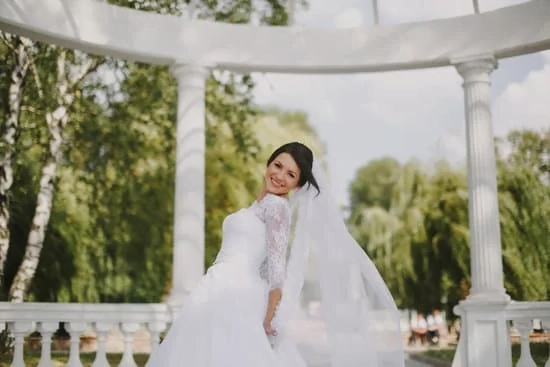Planning a wedding involves countless decisions, from choosing the perfect venue to selecting the ideal menu. However, one aspect that often gets overlooked is the music selection. With so much focus on the songs to be played, it’s equally important for couples to consider what shouldn’t be played.
This is where the concept of a “Do Not Play List” comes into play. For many couples, creating a list of songs they don’t want to hear on their big day is just as crucial as choosing their favorite tunes.
The purpose of a Do Not Play List goes beyond personal preferences; it’s about ensuring that all guests have an enjoyable experience at the wedding. By eliminating songs that might be inappropriate or simply undesirable, couples can create a more comfortable and inclusive atmosphere for everyone in attendance. In this article, we’ll delve into this concept and explore why it’s essential for couples to consider implementing a Do Not Play List for their wedding.
As we delve into the significance of creating a Do Not Play List, we’ll discuss how it can help avoid unwanted or inappropriate songs while also highlighting the potential impact it can have on guests’ overall enjoyment of the event. We’ll also provide insights into handling requests for prohibited songs and offer tips on effectively communicating with wedding DJs or bands to ensure that the Do Not Play List is honored.
So let’s take a closer look at why this seemingly small detail can make a significant difference in couples’ special day.
The Purpose of a Do Not Play List
Creating a do not play list for weddings is an essential aspect of ensuring that the music played during the celebration reflects the couple’s tastes and preferences. This list serves as a guide for the wedding DJ or band, outlining specific songs that are considered inappropriate, overplayed, or simply undesirable for the occasion.
By having a do not play list in place, couples can maintain control over the music selection and create a more enjoyable experience for all their guests.
One of the key purposes of a do not play list is to avoid playing songs that may be considered inappropriate or offensive to guests. This could include tracks with explicit language, suggestive themes, or references to heartbreak and loss. By proactively addressing these potential pitfalls through the creation of a do not play list, couples can ensure that the atmosphere remains positive and uplifting throughout the event.
Furthermore, a do not play list can help couples steer clear of overplayed songs that have become cliché at weddings. Many guests have likely heard these songs multiple times at various weddings, and they may welcome a fresh approach to musical selections. By providing a do not play list to their DJ or band, couples can steer clear of these tired tunes and introduce their guests to new and unexpected musical experiences.
How to Create a Do Not Play List
Creating a “Do Not Play List” for your wedding can be just as important as choosing the songs you do want to hear on your special day. This list is a key tool for ensuring that the music played at your wedding is in line with your preferences and reflects the tone and atmosphere you want to create for your celebration.
It can help avoid any unpleasant surprises and make sure that all guests have an enjoyable time without being subjected to any songs that may not be suitable for the occasion.
To start creating a Do Not Play List, couples should first sit down together and discuss their musical preferences, taking into account any personal dislikes or songs that hold negative connotations for them. They should also consider their guest list, thinking about any specific songs or genres that may not be well-received by certain attendees. For example, if there are children present at the wedding, it would be wise to omit songs with explicit lyrics.
Once the couple has compiled a preliminary list of songs to be excluded from their wedding playlist, they should then communicate this information clearly to their chosen entertainment professionals, whether it’s a DJ or a live band. It’s essential to have an open and honest conversation with them about the importance of sticking to the Do Not Play List and ensuring that they understand the reasoning behind it.
This will help prevent any misunderstandings on the big day and ensure that everyone is on the same page regarding expectations for the music selection.
| Step | Instruction |
|---|---|
| 1 | Sit down with your partner and discuss your musical preferences and any specific songs or genres you want to exclude from your wedding playlist. |
| 2 | Create a preliminary list of songs to be excluded and consider any cultural or religious sensitivities related to certain musical choices. |
| 3 | Communicate your Do Not Play List clearly to your chosen entertainment professionals, whether it’s a DJ or live band, ensuring they understand its importance. |
Examples of Common Songs to Avoid
When planning a wedding, selecting the right music is crucial to creating the perfect atmosphere for your special day. To help you curate a do not play list for your wedding, it’s important to consider popular songs that are often overplayed at weddings and ones that might not be appropriate for the occasion. By being mindful of these songs, you can ensure that your wedding playlist reflects your personal tastes and sets the desired tone for your celebration.
Here are some examples of common songs to avoid when creating your do not play list:
- “Celebration” by Kool & The Gang: While this song may seem like an obvious choice for weddings, it has become cliché and is often overplayed at receptions. Consider skipping this one to keep your playlist fresh and unique.
- “I Will Always Love You” by Whitney Houston: As a breakup ballad, this song may not be the best choice for a wedding celebration. It carries emotional baggage that might not fit the joyous mood of the occasion.
- Songs with explicit lyrics: It’s essential to review your playlist and remove any songs with explicit or inappropriate lyrics that may offend guests or detract from the overall atmosphere of the event. This includes any tracks with profanity or sexually explicit content.
By taking these examples into consideration and carefully crafting your do not play list, you can ensure that your wedding music reflects your personal style and creates an enjoyable experience for all attendees. Communicating these preferences clearly to your wedding DJ or band will allow them to tailor their performance to suit your vision for the event.
Remember, creating a do not play list isn’t just about avoiding specific tracks; it’s about curating a playlist that truly represents you as a couple and ensures everyone has an amazing time on your big day.
Considerations for Cultural or Religious Sensitivities
When creating a do not play list for a wedding, it is essential for couples to consider the cultural and religious sensitivities of their guests. Music holds great significance in many cultures and religions, and certain songs or musical styles may be inappropriate or offensive to some individuals. As such, it is important to be mindful of this when curating the playlist for the wedding celebration.
Before finalizing the do not play list, couples should take the time to understand the cultural and religious backgrounds of their guests. This may involve consulting with family members or close friends who can provide insights into any specific musical preferences or taboos within their respective cultures or religious traditions. By doing so, couples can ensure that they are respectful of their guests’ beliefs and avoid any potential misunderstandings or discomfort during the event.
In addition to understanding the cultural and religious sensitivities of their guests, couples should also consider incorporating music that holds special meaning within these traditions. This could involve including traditional songs or dances that are significant to a particular culture or religion, thereby embracing diversity and creating a more inclusive and meaningful experience for all attendees.
Overall, by being mindful of cultural and religious sensitivities when creating a do not play list for their wedding, couples can demonstrate respect for their guests’ beliefs and create an environment that is welcoming and inclusive for everyone in attendance.
| Considerations | Cultural/Religious Sensitivities |
|---|---|
| Understanding guest backgrounds | Respecting specific musical preferences or taboos |
| Incorporating meaningful music | Embracing diversity in traditions |
Communicating With the Wedding DJ or Band
When it comes to creating a do not play list for your wedding, effective communication with the wedding DJ or band is key. It’s important to ensure that the entertainment professionals understand the significance of adhering to the list and respecting your musical preferences. Here are some tips on how to effectively communicate your do not play list:
- Be Clear and Specific: When providing the wedding DJ or band with your do not play list, be clear and specific about the songs or genres that you want to avoid. Provide examples if necessary to ensure that there is no confusion.
- Have a Discussion: Schedule a meeting or phone call with the entertainment professionals to have a thorough discussion about your musical preferences. This will allow you to convey the importance of the do not play list and address any questions or concerns they may have.
- Provide Context: Explain the reasons behind certain songs being on your do not play list. Whether it’s due to personal significance, cultural sensitivities, or simply a dislike for certain tracks, providing context can help the wedding DJ or band better understand your preferences.
It’s also essential to make sure that the entertainment professionals understand that adhering to the do not play list is non-negotiable. Clearly communicate that playing any songs from the list is off-limits, and emphasize how important it is for you and your partner to have a memorable and enjoyable wedding day without any unwanted music.
Finally, stay in regular communication with the wedding DJ or band leading up to the big day. Follow up with them as needed, answer any questions they may have, and reaffirm the importance of sticking to the do not play list. By maintaining open lines of communication, you can ensure that everyone is on the same page when it comes to musical selections for your wedding celebration.
Tips for Handling Requests
Dealing with guest requests for songs that are on the do not play list can be a delicate situation for couples on their wedding day. While it’s important to honor the couple’s preferences, it’s also important to handle these situations with grace and diplomacy. Here are some tips for handling requests in a respectful manner:
Communicate With the DJ or Band
Before the wedding day, make sure to communicate with your entertainment professionals about how you want them to handle requests for songs on the do not play list. Let them know that they should respectfully decline any requests for those specific songs and have alternative options ready to suggest.
Enlist the Help of Your Bridal Party
If guests persist in requesting songs from the do not play list, consider enlisting the help of your bridal party members or close friends to gently remind them that those specific songs are off-limits for the event. Having a united front from your inner circle can help reinforce your wishes without causing undue tension.
Provide Alternative Entertainment
To divert attention away from unwanted song requests, consider providing other forms of entertainment such as a photo booth, games, or special performances. This can shift the focus away from music and provide guests with alternative sources of enjoyment.
By taking proactive steps to communicate your preferences and having strategies in place to handle unwanted song requests diplomatically, couples can ensure that their wedding day remains true to their vision while still creating an enjoyable experience for all guests.
Final Thoughts
In conclusion, creating a do not play list for weddings is a crucial step for couples to ensure that their special day is filled with the music they love and devoid of any songs that could detract from the joyous atmosphere. By carefully considering their musical preferences and potential sensitivities of their guests, couples can curate a playlist that sets the perfect tone for their celebration.
It’s important for couples to communicate their do not play list effectively to their wedding DJ or band, and also be prepared to handle any guest requests for restricted songs with grace and diplomacy.
Ultimately, the goal of a do not play list is to create an enjoyable experience for all guests while reflecting the couple’s tastes and values. It’s a chance for couples to personalize their wedding day even further, ensuring that every song played reflects their journey together.
By taking the time to thoughtfully craft a do not play list, couples can avoid potential awkward moments or disappointments during their reception, allowing everyone to fully participate in the celebration without any distractions.
In essence, creating a do not play list is about taking control of the ambiance and atmosphere of one’s wedding day. By carefully selecting the songs that will be played, couples can guarantee that every moment is filled with joy and love, enhancing the overall experience for themselves as well as their cherished guests.
So take the time to consider your musical preferences and compile your own do not play list – your wedding day will be all the more memorable because of it.
Frequently Asked Questions
What Song Not to Play at a Wedding?
When it comes to choosing songs for a wedding, it’s important to consider the lyrics and overall tone of the music. A song with heartbreak or a negative message, such as “I Will Always Love You” by Whitney Houston, would not be appropriate for a wedding.
How Many Slow Songs Should Be Played at a Wedding?
The number of slow songs to play at a wedding really depends on the couple’s preference and the overall vibe they want to create. Usually, having a few slow songs throughout the evening can create romantic moments for couples to dance and enjoy each other’s company.
What Is the Most Played Song at a Wedding?
“I Don’t Want to Miss a Thing” by Aerosmith is often cited as one of the most played songs at weddings. Its powerful lyrics about never wanting to miss a moment with your loved one make it a popular choice for couples to share during their special day.

Welcome to my blog about home and family. This blog is a place where I will share my thoughts, ideas, and experiences related to these important topics. I am a stay-at-home mom with two young children. I hope you enjoy reading it! and may find some helpful tips and ideas that will make your home and family life even better!





